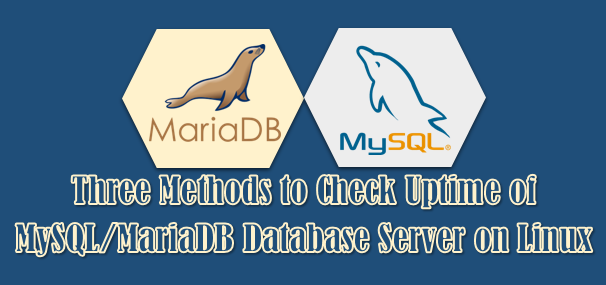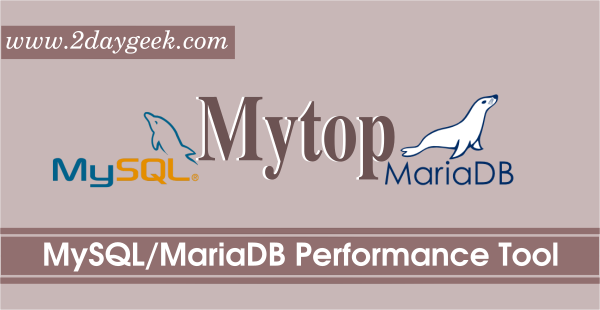PostgreSQL is a powerful, Free, open-source object-relational database system (ORDBMS). It’s in active development and had more than 15 years of experience and a proven architecture that has earned it a strong reputation for reliability, data integrity, and correctness. It runs on all major operating systems, including Linux, UNIX (AIX, BSD, HP-UX, SGI IRIX, Mac OS X, Solaris, Tru64), and Windows. PostgreSQL support the standard database functionality such as foreign keys, joins, views, triggers, and stored procedures (in multiple languages) and support most SQL:2008 data types, including INTEGER, NUMERIC, BOOLEAN, CHAR, VARCHAR, DATE, INTERVAL, and TIMESTAMP also supports storage of binary large objects, including pictures, sounds, or video. It has native programming interfaces for C/C++, Java, .Net, Perl, Python, Ruby, Tcl, ODBC, among, etc…The latest version of PostgreSQL 9.5.1 released on February 11, 2016.
1) Add PostgreSQL Repo on RPM System
We can easily install Latest version of PostgreSQL release from PostgreSQL official repository to RHEL 6/7, CentOS 6/7, Oracle Linux 6/7 & Scientific Linux 6/7. Just add the below repository based on your distribution and install it.
For Fedora 23 # rpm -Uvh http://yum.postgresql.org/9.5/fedora/fedora-23-x86_64/pgdg-fedora95-9.5-3.noarch.rpm For Fedora 22 # rpm -Uvh http://yum.postgresql.org/9.5/fedora/fedora-22-x86_64/pgdg-fedora95-9.5-3.noarch.rpm For RHEL/CentOS/SL/OL 7 Series # rpm -Uvh http://yum.postgresql.org/9.5/redhat/rhel-7-x86_64/pgdg-redhat95-9.5-2.noarch.rpm For RHEL/CentOS/SL/OL 6 Series # rpm -Uvh http://yum.postgresql.org/9.5/redhat/rhel-6-x86_64/pgdg-redhat95-9.5-2.noarch.rpm
1a) Install & Initializing PostgreSQL on RPM System
Once you added postgreSQL, just fire below commands to install and initialize the database in PGDATA (only needed once).
Install postgreSQL
# [yum|dnf] install postgresql95-server postgresql95
Initialize the database in PGDATA (only needed once) on RHEL/CentOS/SL/OL 7 Series & Fedora 19 & later
# /usr/pgsql-9.5/bin/postgresql95-setup initdb
Initialize the database in PGDATA (only needed once) on RHEL/CentOS/SL/OL 6 Series & upto Fedora 18
# service postgresql-9.5 initdb
1b) Start PostgreSQL Server
After successful installation of PostgreSQL, you have to kick start and enable in boot.
Start postgreSQL & Enable on boot (7 Series & Fedora) # systemctl start postgresql-9.5 # systemctl enable postgresql-9.5 Start postgreSQL & Enable on boot (6 Series) # service postgresql-9.5 start # chkconfig postgresql-9.5 on
2) Add apt repo & Install PostgreSQL on DEB System
Just add apt postgreSQL repo then fire below commands to install postgreSQL on Debian based systems such as Debian, Ubuntu & Mint.
Install postgreSQL on Debian 6, 7 & 8 : Ubuntu 12.04, 14.04 & 14.10
$ sudo sh -c "echo 'deb http://apt.postgresql.org/pub/repos/apt/ '$(lsb_release -cs)'-pgdg main' >> /etc/apt/sources.list.d/pgdg.list"
$ wget --quiet -O - https://www.postgresql.org/media/keys/ACCC4CF8.asc | sudo apt-key add -
$ sudo apt-get update
$ sudo apt-get install postgresql postgresql-contrib
3) Verify PostgreSQL Installation
We have successful installed PostgreSQL to confirm, check whether PostgreSQL working fine or not, by following below steps. PostgreSQL has been installed under postgres user name, just switch the user and use psql command to access the shell. By default PostgreSQL wont have password and you can set easily.
Swithch to postgres user # su - postgres Access PostgreSQL shell $ psql psql (9.5.1) Type "help" for help. postgres=# Set password for postgres postgres=# \password postgres To disconnet PostgreSQL postgres-# \q
Enjoy….)




For Linux Mint 18 I had to replace the following line:
sudo sh -c “echo ‘deb http://apt.postgresql.org/pub/repos/apt/ ‘$(lsb_release -cs)’-pgdg main’ >> /etc/apt/sources.list.d/pgdg.list”
..with this one:
sudo sh -c “echo ‘deb http://apt.postgresql.org/pub/repos/apt/ xenial-pgdg main’ >> /etc/apt/sources.list.d/pgdg.list”
The variable “$(lsb_release -cs)” gets set to “sarah” which is the name of Mint 18, but the repo requires “xenial” (Ubuntu version).